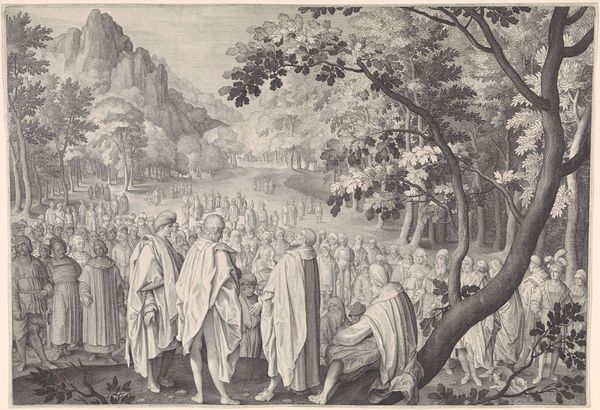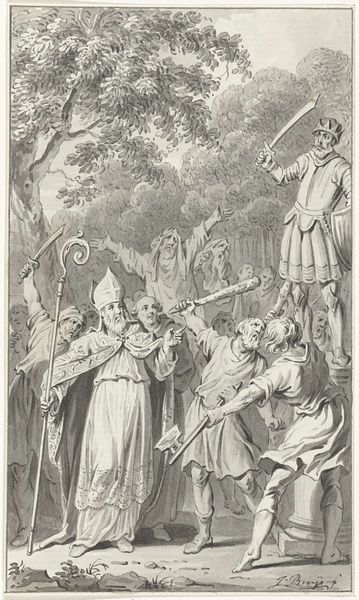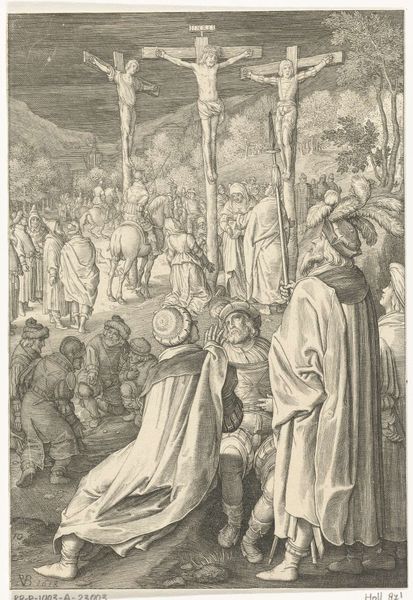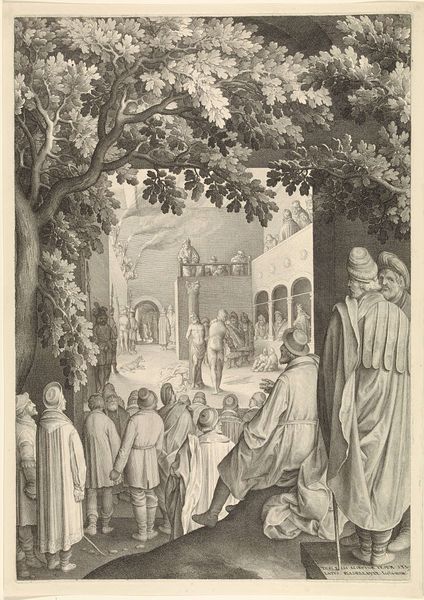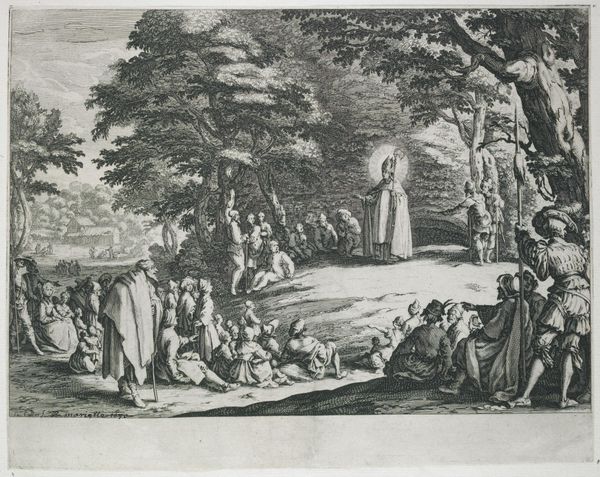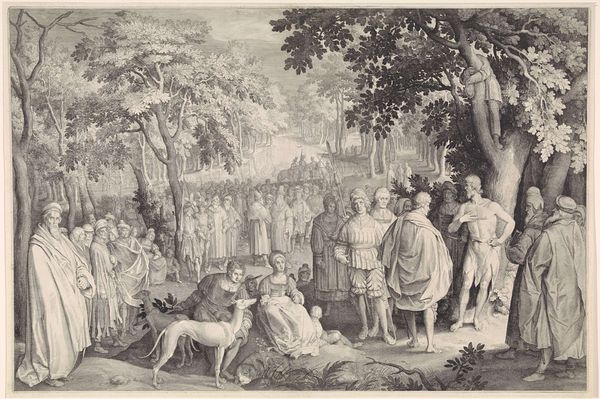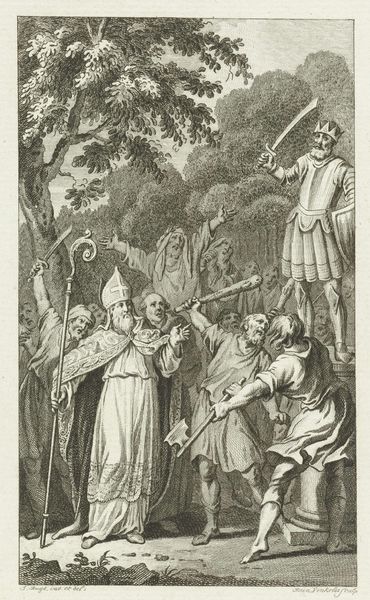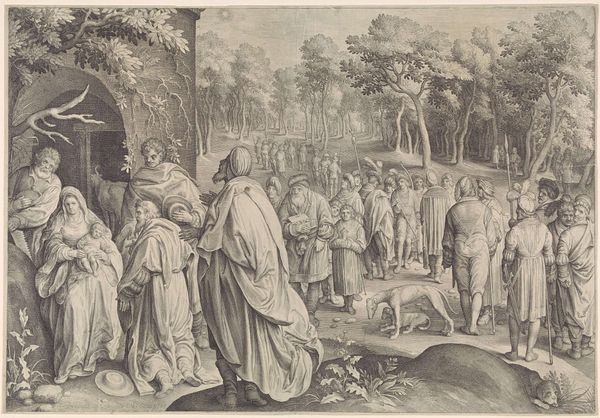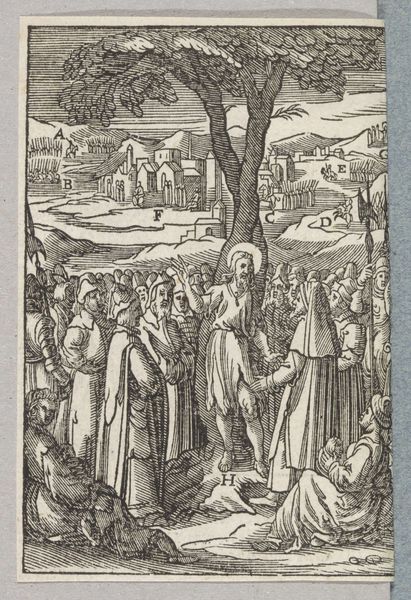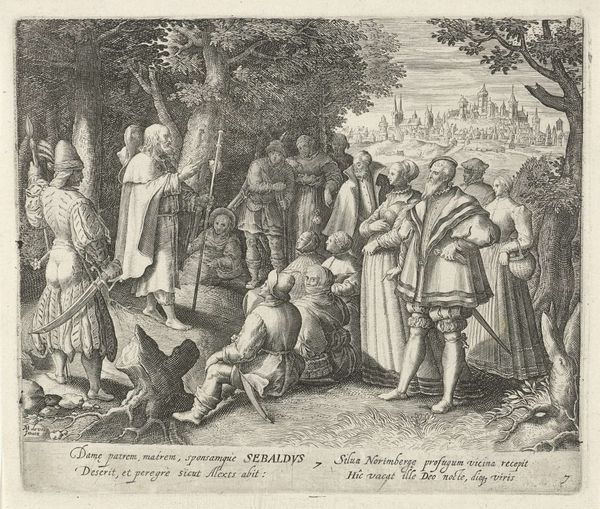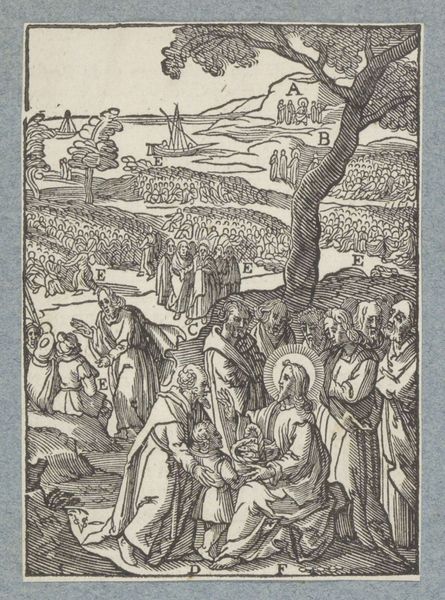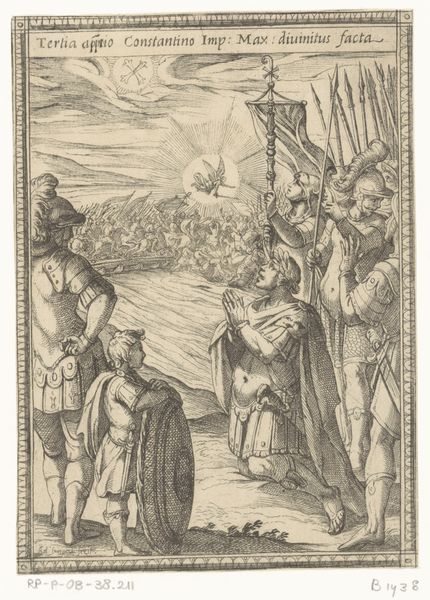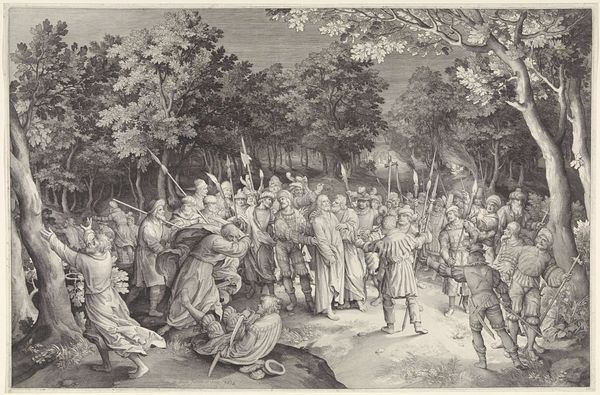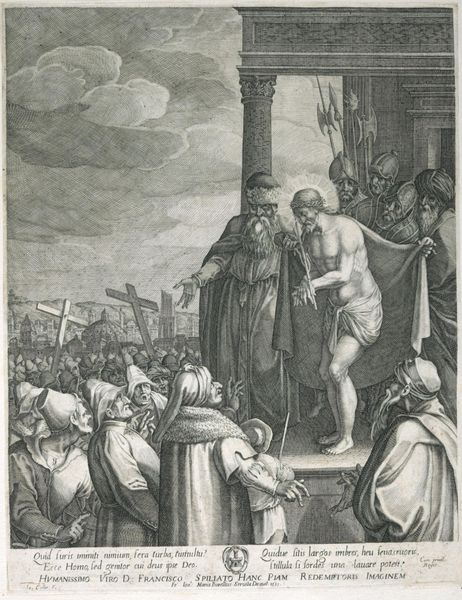
print, engraving
#
baroque
# print
#
landscape
#
figuration
#
history-painting
#
engraving
Dimensions: width 462 mm, height 661 mm
Copyright: Rijks Museum: Open Domain
Nicolaes de Bruyn created this print, titled "Christus aan het kruis," using engraving techniques sometime between 1571 and 1656. The print's stark contrast and fine detail arise from the labor-intensive process of engraving, where the artist uses a tool called a burin to incise lines directly into a metal plate. Ink is then applied to the plate, filling the engraved lines, and the excess is wiped away. The image is transferred to paper under high pressure, creating a reversed impression of the original design. This method demands immense skill and precision, as each line contributes to the overall composition, texture, and tone of the artwork. The very act of engraving imbues the print with a sense of meticulous craftsmanship. The choice of printmaking as a medium is significant. It allowed for the mass production and distribution of images, making art more accessible to a broader audience. Ultimately, understanding the materials and processes behind "Christus aan het kruis" enriches our appreciation of its cultural and social significance. It reminds us that art is not just about the final image, but also about the labor, skill, and context that bring it into being.
Comments
No comments
Be the first to comment and join the conversation on the ultimate creative platform.
